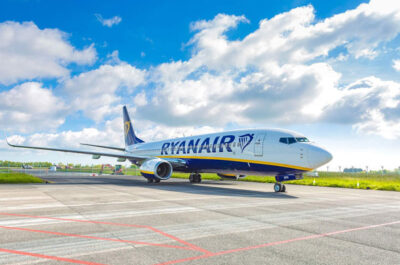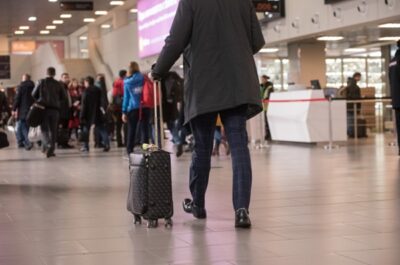Coronavirus (COVID-19) sent the travel industry into a tailspin. Travel companies are worried about the pandemic’s impact on their business and struggle to accommodate travelers while mitigating financial loss. Protecting people’s health is the top priority, but travel brands certainly worry about the economic ramifications of COVID-19, the travel industry’s ability to recover, and consumers’ willingness to book trips in the near future. Historically, you can’t have an economic recovery unless airlines are running, so it is in the country’s best
Coronavirus (COVID-19) sent the travel industry into a tailspin. Travel companies are worried about the pandemic’s impact on their business and struggle to accommodate travelers while mitigating financial loss. Protecting people’s health is the top priority, but travel brands certainly worry about the economic ramifications of COVID-19, the travel industry’s ability to recover, and consumers’ willingness to book trips in the near future.
Historically, you can’t have an economic recovery unless airlines are running, so it is in the country’s best interest to ensure airlines are operating as close to “business as usual” as possible. While some experts predict doomsday scenarios, others think the U.S. airline industry will begin to recover quickly.
This predicament can quickly change as the curve flattens, and the U.S. airline industry should bounce back, especially in light of the recently announced $2 trillion relief package, the biggest in U.S. history. The legislation, which could be enacted within days, is intended to provide critical aid to hospitals and to support Americans who have been laid off and businesses that have been forced to close their doors, including airlines.
The travel industry can and will recover, but not without consumers. After weeks or months of social distancing, people will be eager to get out and explore. They will want a change in scenery, and to take a break from their home life. However, they will be wary to invest in a trip without protection. Insurance is going to take on new importance for travelers, evolving from a “nice to have” feature, to a “travel necessity.”
This evolution, unfortunately, happens in the wake of catastrophes, including natural disasters like floods and hurricanes, which have been steadily increasing for decades. These kinds of severe events-particularly COVID-19, which has global implications–prove the importance of protection and demonstrate why insurance should be an integral part of any valuable purchase.
Going forward, consumers are going to expect brands to offer them some net of protection. They will want easy-to-access and easy-to-understand insurance policies. They may also have some questions about best practices. So, here is what consumers should keep in mind as they purchase insurance to protect their travel in a post-COVID-19 world.
Avoid one-size-fits-all policies
Travel insurance helps protect purchased trips by providing cancellation for things such as sickness, loss of a job, being unable to undergo a needed vaccination or your destination being uninhabitable. But not every policy does all those things. Travelers should look to book trips with brands that offer a range of policies and customizable solutions so they can create coverage that eases their specific concerns.
Look into change fees
Some airlines and travel services make it easier to change the dates of your trip than others; and in some cases, you will incur a fee if you need to move travel. Consumers should consider change fees as they build their itinerary. They should also keep in mind that most travel insurance policies are adaptable, so if they need to move their trip, they can change their insurance, too.
Read through “exclusions” carefully
Every travel insurance plan has a list of “exclusions” – the events that will not be covered under the policy. For example, a policy might exclude losses due to a preexisting medical condition, or, potentially, a global pandemic. Travelers should purchase insurance that provides the specific coverage you need. So, if you are going on a cruise make sure your policy includes “missed port of call” as part of the coverage.
Understand the “Cancel for Any Reason” policy
“Cancel for Any Reason” insurance plans are exactly what they sound like. Travelers can change or cancel travel for any reason. In the wake of the Coronavirus, that is going to sound appealing to a lot of consumers. But these plans can be upward of 50% of the total insurance cost. For example, with a $200 insurance policy, the “cancel for any reason” plan could cost an additional $100. That may be well worth it for protection and peace of mind, especially when booking travel far in advance, but consumers need to understand the cost.
These are trying times, but we will get through it. The travel industry will bounce back, and people will once again take trips, for business and for pleasure. In the future, insurance will play an ever-important role in travel, for brands and consumers alike. And brands that offer the right protection at the right time will earn customer loyalty and trust.
Patrick “Pat” Young serves as head of strategic partnerships, travel, for the Americas at Cover Genius, one of the fastest growing insurtechs globally. At Cover Genius, Young is responsible for leading and executing the company’s travel strategy and growing the reach of its global insurance coverage so partners can scale their international operations from a single seamless integration. He partners with leading travel brands to integrate Cover Genius’s XClaim platform, which provides instant global payments in over 90 currencies and supports multiple payment methods and providers.









































































































































































































